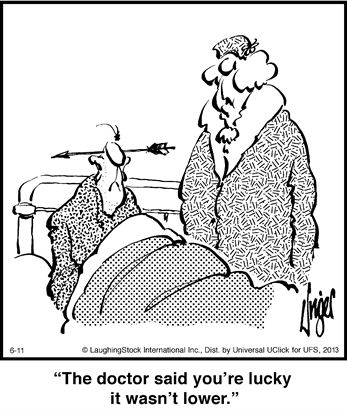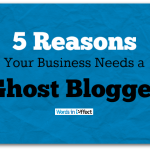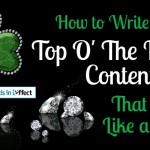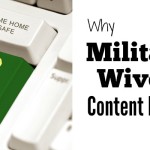By Becky Tumidolsky
Recently, while browsing my LinkedIn news feed, I came across a photo posted by a marketing exec I’ve worked with in the past. The photo was taken at a slideshow presentation, and the projected text read, “There is no B2B and B2C. Human to Human: #H2H” (title of the oft-cited book written by media strategist and PureMatter CEO Bryan Kramer).
This, I love. As a professional writer who has written both B2B and B2C content (though primarily B2B), I’ve always felt that B2C writers have all the fun, connecting with target audiences and cultivating brand identity with warmth and flair and personality. B2B is more about conveying bigness, intellect, and esteem, treating prospects like market entities rather than people with pulses.
Obviously, I’m painting with a pretty broad brush. But this has been my experience, by and large.
In an earlier post, I argued that B2B content marketing is an act of love—not romantic or obsessive, but mature and neighborly. How do most well-meaning neighbors break the ice? Often, with a dash of good-natured humor. To my mind, effective B2B content marketing feels a lot like that first neighborly contact. Consider this: Would you introduce yourself and extend a friendly hand in any other context without cracking a smile?
Here are five important benefits of using humor* to communicate with target audiences in the B2B content marketing space.
*the right kind, in the right amount—See Colin Shaw’s advice on “Using Humor in Business” and a few good suggestions for using humor across various marketing channels.
B2B Humor: A Great Way to Engage
1. Humor resonates.
Speaking to shared experiences—particularly when you’re addressing prospects’ “pain points”—is essential to creating a need and communicating the value you offer. When used judiciously, says marketing blogger Dan Kennedy, humor based on shared experiences is singularly effective at building “rapport and trust.”
2. Humor engages the intellect.
Witty humor simultaneously reflects and attracts a keen intellect—making it a great lubricant for the exchange of ideas between and among key decision makers. (What corporate executive would deliver a speech without first softening up the crowd with a joke?)
3. Humor leaves a lasting impression.
Marketers have long understood, and studies have confirmed, that humor makes messaging more memorable. A 1993 study published in the Journal of Marketing concluded that, when used appropriately for a brand and its intended audience, “humor is more likely to enhance recall” and “increase memorability, overcome sales resistance, and enhance message persuasiveness” (see #4, below).
4. Humor makes marketing communications more palatable (and marketers more likeable).
It has a way of disarming reflexive cynicism on the part of readers who might otherwise reject yet another marketing attempt (one of many bombarding them daily). According to writer Tom Bentley, “[Mark] Twain well knew that by making a reader laugh, his pen was welcomed into that reader’s mind. Thus he kept his readers laughing—and agreeing—for his entire life. Marketing by mirth.”
5. Humor will differentiate you from the rest of the industry stiffs.
High-minded, serious content is exactly what business audiences have come to expect. But to cut through the clutter, why not tease readers out of their comfort zone? Be a little playful—irreverent, even, if the opportunity is there. If you have fun with your content, you’ll seem more accessible, more at ease, more confident, and more genuine. In today’s competitive environment, these are the strengths that sell.

Since 2001, Becky Tumidolsky has written awareness-building content for B2B brands and their discerning audiences. Her work has appeared in leading publications such as Forbes, U.S.News & World Report, Bloomberg Markets, Newsweek, and Inc. as well as corporate blogs, websites, white papers, and other content assets.
Becky loves writing fluid, error-free prose. She’s even more passionate about building the foundation for her work—uncovering core brand distinctions, framing them thematically, and developing fresh, compelling narratives that advance corporate strategies.
Follow and connect: Twitter| Google+| LinkedIn| Facebook






Leave a Reply